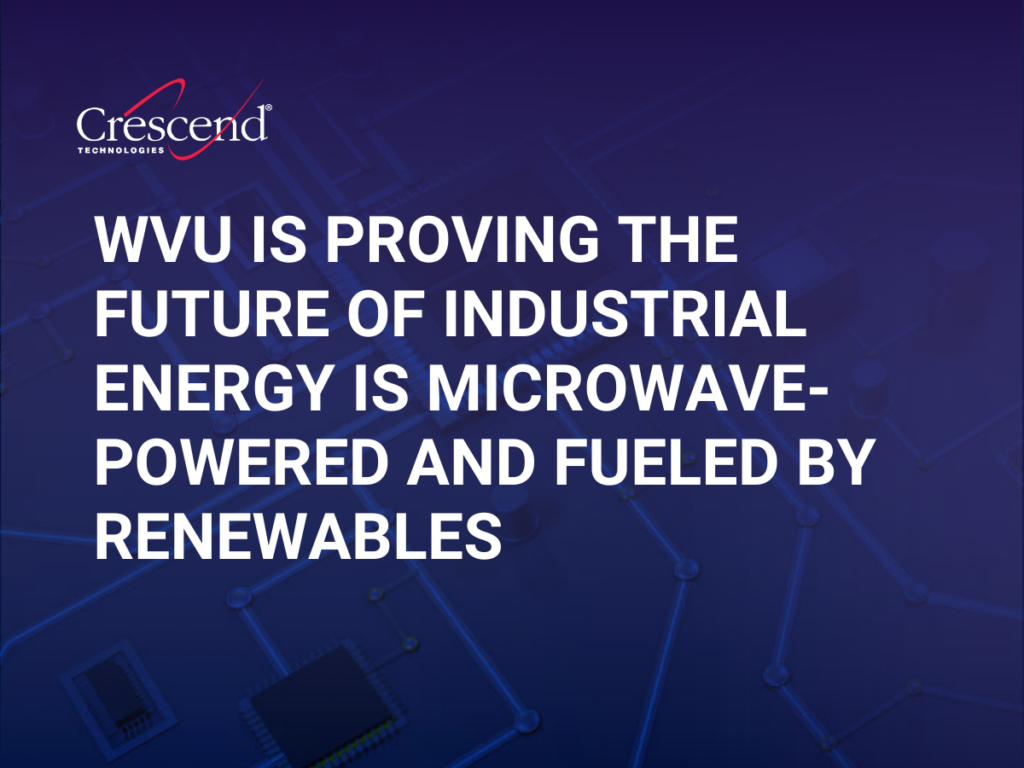The Future of Industrial Energy is Microwave-Powered—and Fueled by Renewables
West Virginia University is making big moves in microwave technology for industrial heating, proving just how impactful solid-state microwave energy can be. Their research not only demonstrates how microwaves reduce #energy consumption and #emissions across heavy #industries, but also how pairing this technology with renewable energy sources could unlock even greater sustainability gains.
“Using microwaves allows us to control the heat delivery very precisely, so that we can quickly switch between heating the reactor to produce methane and cooling it to synthesize ammonia,” said WVU’s Dr. John Hu. “By using the hydrogen from methane coupling, we remove the need for a hydrogen production step in ammonia synthesis and make the process much more friendly to the environment.”
At Crescend Technologies, we share this vision. Our solid-state microwave generators are already enabling industries to move away from fossil fuels, improve energy efficiency, and achieve cleaner, more precise thermal processing. When powered by renewable energy, solid-state microwave systems create a fully sustainable pathway for industrial heating, drying, and chemical processing—helping industries meet their decarbonization goals faster.
The future of industrial energy isn’t just about reducing emissions. It’s about rethinking how heat is delivered, controlled, and sourced. The combination of solid-state microwave technology and renewables makes that future possible today.
Read more here at www.wvutoday.wvu.edu
